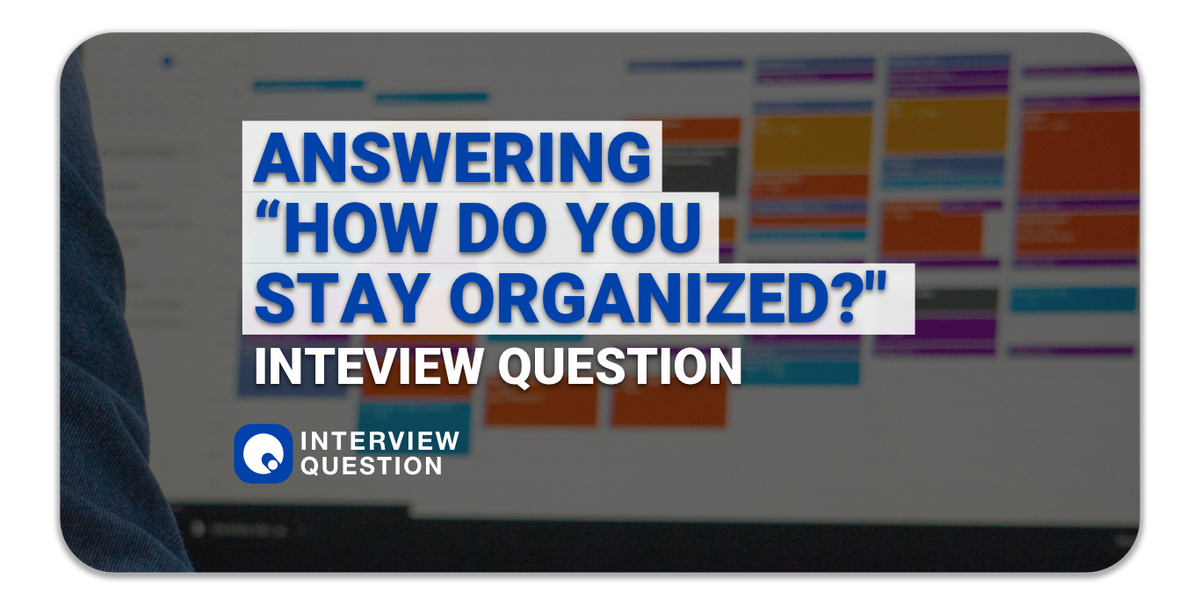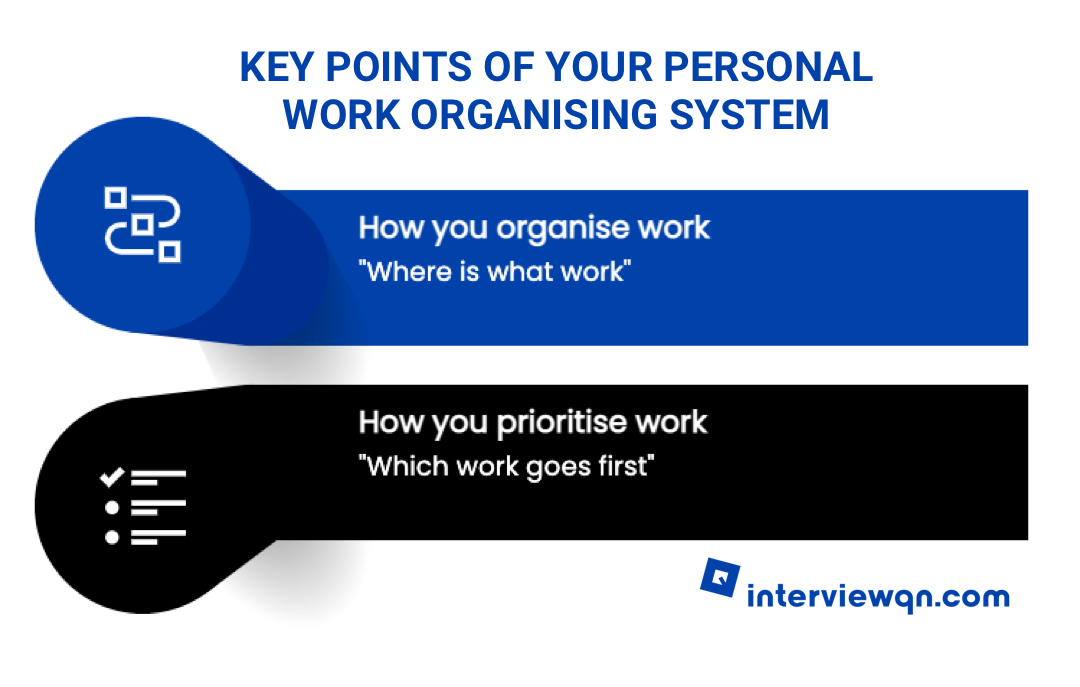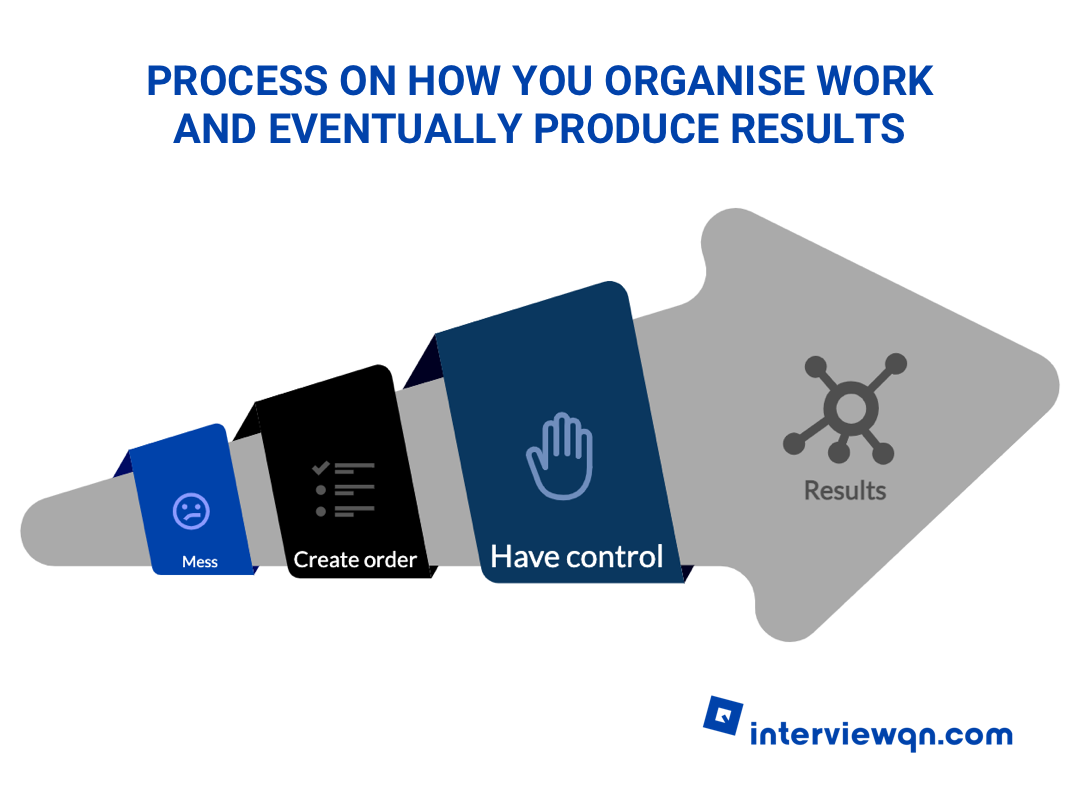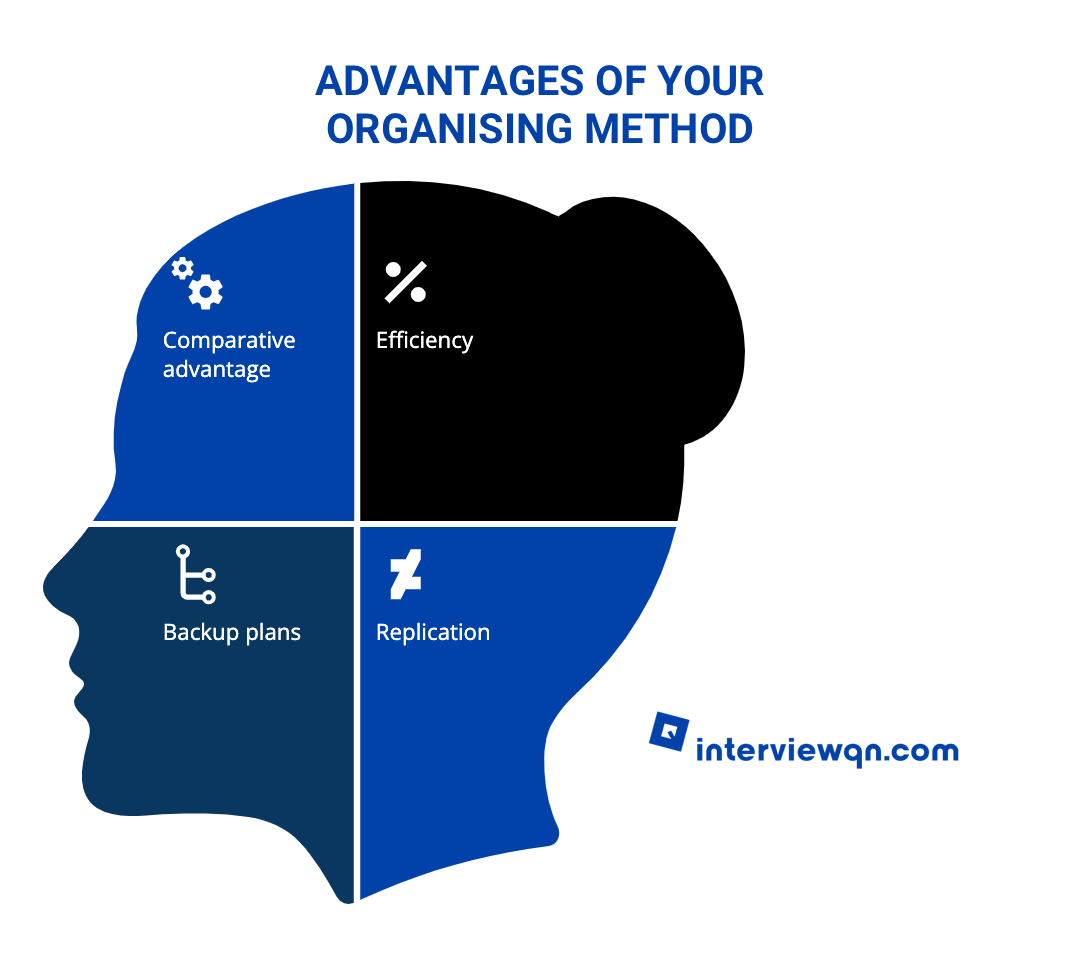The #1 Trick for Answering the "How Do You Stay Organized?" Inteview Question
If you're looking for tips on how to answer the common interview question "How do you stay organized?", look no further to nailing this answer.

In an interview, you want to come across as a competent and organized individual. Unfortunately, the question "How do you stay organized?" can trip up even the most qualified candidate.
The key is to have a go-to organization method that you can rely on no matter what the situation is. For example, some people prefer to use a physical planner while others might prefer to use a digital one. No matter what your preference is, make sure you have a system in place that works for you and be prepared to talk about it in an interview setting.
Articulating your personal system of organisation in an interview

When it comes to interviews, your potential employer is going to want to know how you organise and prioritise your work.
By articulating your personal system of organisation, you can demonstrate that you have the skills and methods in place to handle a variety of tasks effectively.
Are you an organised employee?
Some jobs demand a particular level of orderliness and are more suited for very well-organised people who can handle complexity.
The employee's nature - a tidy workspace and mind
A good candidate who is an organised employee at work will be able to show that he can keep work organised, plan his day, his schedule.
Some features of a organised employee:
- Neat and tidy desk
- Legible handwriting
- Tasks have deadlines and are assigned to himself or someone else
- Regular follow up and check in for tasks delegated to others
- Uncluttered brain with ideas often written down
- Emails sent are clear and concise, without ambiguity or double meaning
If a candidate cannot handle a messy situation with lots of variables, unknowns and changes, it can show poor adaptability and eventual inability to cope with the workload.
Knowing what tools and systems to use to keep organised
Tools he may use to stay organised could be a calendar (Outlook, Google Calendar, or a physical moleskin notebook), task list (an app on his phone, etc).
More complex systems could be a matrix between urgency and importance - where each task is scored in each category from 1 to 3 points. For example, if preparing a speech for next week's conference opening address was ranked 2 on urgency and 3 on importance, then this task scores 6 points. So if his supervisor suddenly informs that the company's director will be showing up in 15 minutes for a surprise audit, this new task will be prioritised before the speech, as it scores 9 points with 3 points in both urgency and importance category. Such matrix organisational systems costs nothing financially, yet it is a skill that adds another depth of organisation which works well in most workplace scenarios.
These tools and systems helps keep things in check.
Be clear and concise when describing your "method of madness"
Your interviewer will not be interested in hearing a long-winded explanation of every little detail – they just want to get an overview of how you operate. So, make sure you focus on the key points and keep your answer relatively brief.

Explain the salient (key) points on how you:
- What "your organised mess looks like"
- How you find things and get things done when required
- Explain your thought process on how you keep everything in control
Highlight the benefits of your organisational system
Use rhetorical questioning to bring out the major plus points to how you keep things organised at work. Then explain those slowly during the interview - your interviewers will be listening for the very first time so they need time to abosrb what you just said.
Here are some rhetorical questions on the benefits of your organisational system to get you started with:
- What comparative advantages does it offer versus what your colleagues are doing to sort their workload?
- How does it help you get things done more efficiently?
- Do you have a backup plan for when you are sick or off-work?
- Can the system be easily replicated, and are your other colleagues emulating you?

By emphasising the positive aspects of your approach, you’ll show that you’re aware of its value and that you know how best to utilise it for maximum results.
General structure to how you answer the "How Do You Stay Organized? Interview Question
Firstly, emphasize that you have a system in place – employers want candidates who can demonstrate efficient time management and organizational skills.
Secondly, explain how your system helps you to be productive and meet deadlines; give concrete examples where possible.
Finally, stress that you are flexible and adaptable, and can easily adjust your system to accommodate new tasks or changing priorities.
Conclusion
In our closing thoughts, we would like to reiterate the importance of articulating your personal system of organisation in an interview. This is a key component in selling yourself as a competent and capable candidate.
By being able to confidently and concisely explain how you organise yourself, you are showing that you have the ability to think critically and take charge when necessary.
This will give you a significant advantage over other candidates who cannot articulate their organisational system, or who do not have one at all. So make sure that you spend some time preparing for this question before your next interview - it could be the difference between getting the job and not.
